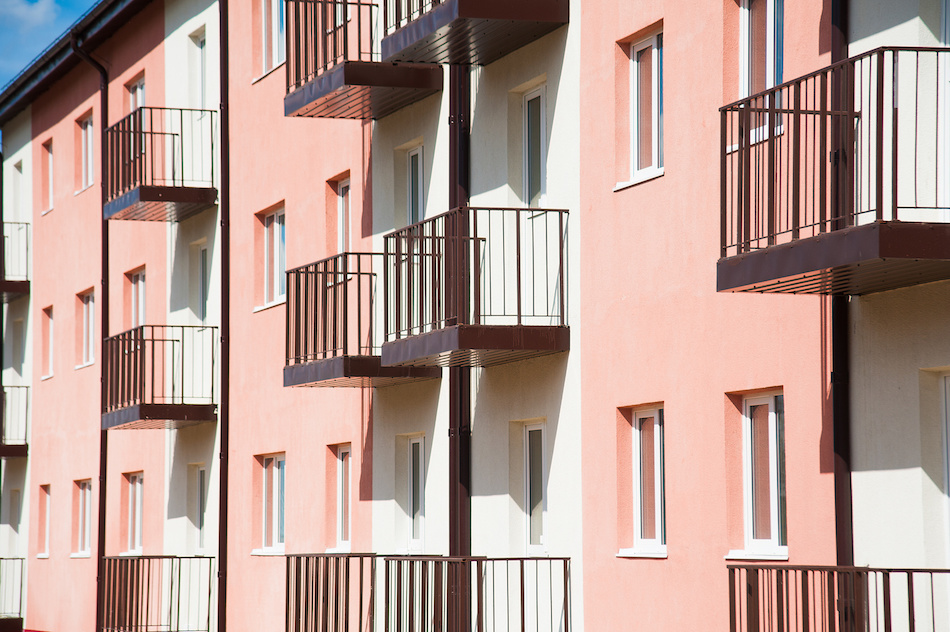Is a Condo the Right Fit for My Lifestyle?
Posted by Justin Havre on Thursday, August 23rd, 2018 at 2:26pm.
 Condominiums offer many benefits to buyers looking to move out of a rental and into property ownership. Condo living is ideal for anyone downsizing or looking for a property with minimal maintenance. For people asking themselves, “What is a condo?”, a condominium or "condo" actually refers to a specific type of legal ownership versus a style of construction, states the Canada Mortgage and Housing Corporation (CMHC). Potential condo buyers can find condominiums in low-rise residential buildings as well as stacked townhouses, townhouse/rowhouse complexes, and both duplexes and triplexes.
Condominiums offer many benefits to buyers looking to move out of a rental and into property ownership. Condo living is ideal for anyone downsizing or looking for a property with minimal maintenance. For people asking themselves, “What is a condo?”, a condominium or "condo" actually refers to a specific type of legal ownership versus a style of construction, states the Canada Mortgage and Housing Corporation (CMHC). Potential condo buyers can find condominiums in low-rise residential buildings as well as stacked townhouses, townhouse/rowhouse complexes, and both duplexes and triplexes.
Approximately one million Canadian households own a condominium. The popularity of this type of home continues to increase due to various benefits a condo offers to buyers. From on-site amenities to low or no maintenance, condo living fits many lifestyles. Considering the benefits of a condominium can help determine if this type of home ownership best fits your lifestyle.
Condo Living
There are many benefits of condo living, but variety is one of the best. Condominiums, like single-family homes, are available with upscale features, a choice in square footage, and diverse price points similar to 55c condos, for example. Depending on the type of condominium construction or building, buyers also have access to on-site amenities. These may include:
- Swimming pool
- Fitness center, sauna
- On-site management
- Enhanced security features
- On-site recreational activities/community room
Potential condominium owners should consider the different on-site amenities of the building or complex before purchasing a unit. A 24-hour, resident-only fitness center may be the perfect amenity for the condo buyer who doesn't want the hassle of paying for an annual gym membership or driving to the facilities each day. Enhanced security features often rank high on the must-have list for many buyers as does the ability to contact an on-site manager 24/7.
Additional Benefits of a Condominium Lifestyle
Purchasing a condo means you own the unit. While there may be guidelines or restrictions to any changes/upgrades done to the unit's exterior, the interior is your home. It's not a rental, so you can choose finishes to suit your personal tastes and preferences. From lighting design to gutting the kitchen to add high-end appliances, it's your unit to customize.
In addition to the actual living space of the unit, a condo owner typically shares "ownership of the common elements and assets of the building and community." Common elements generally include, but are not limited to, areas such as recreation facilities like a pool or fitness center, lobbies, rooftop common areas/gardens, hallways, exterior walkways, and even elevators. Condo owners pay fees to help maintain these common areas and assets. While this fee does need to be added into the owner's budget, it does mean less responsibility and less work compared to owning a single-family house.
Condo owners don't have to worry about mowing the lawn or deal with the hassle of snow removal. If the unit has its own deck or balcony, that space typically is maintained by the owner and not the condominium association. Some condo associations handle upkeep of the units' exteriors, including landscaping and even window washing. When considering a condominium purchase, it's important to find out the exact boundaries of the unit and what is covered/maintained by the association or condominium corporation.
A condo offers several benefits and can work to suit a variety of owner's lifestyles. Because it's possible to find a variety of condominium styles, sizes, and price points, this type of home ownership is sure to appeal to many potential buyers.
Drawbacks of Condo Living
Just as there are benefits of condo living, there are also some drawbacks that buyers should consider before committing to one. Here are some of the different negative aspects homeowners with condos may run into:
- Homeowners Associate Fees: Nearly every condo is part of homeowners association (HOA), and that means the homeowner will have to pay a monthly fee that may range from $200-400. However, it is important to note that associate fees go toward the upkeep of the neighborhood and its amenities.
- Neighborhood Rules: All HOAs will have a set of rules all homeowners have to abide by, so homeowners need to make sure before they move in that they know and will be able to abide all the rules.
- Less Privacy: Because condos are attached to each other, there’s going to be a closeness to the neighbors that owners of single family homes don’t have. For people who need their space from others, this might be a deal breaker.
- Appreciation is Slower: Because condo owners only own the condo and not the land itself, appreciation is much slower than it is for single family homeowners.
With these sorts of drawbacks, is buying a condo worth it? There are many people who won’t mind these disadvantages, but for some, they may make condo living impossible. Interested buyers need to examine their lifestyle choices, the pros and cons of buying a condo, and then decide from there if owning a condo is worth it.

